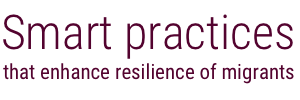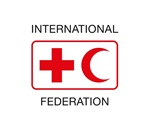A migration unit designed with clearly defined and divided roles amongst the different staff. This allows specialization and focus.
The migration department of the Swedish Red Cross has clearly divided roles in the provision of assistance, protection, awareness raising, and advocacy to vulnerable migrants. The Migration Unit has three teams: 1) the restoring family links (RFL) team; 2) the legal-advocacy team; 3) the integration team; each works on a different area of migration. The separation of roles has contributed to the Swedish Red Cross being viewed as one of the leading agencies working on migration with respect to advocacy, immediate response to migrants, and providing support for trauma.
- RFL RFL services include (i) tracing; (ii) exchanging Red Cross messages; (iii) confirming a family member’s detention and other such activities; (iv) family reunification activities such as practical and legal assistance; (v) a travel support programme; and (vi) legal advisory service on asylum and family reunification.
- Legal-advocacy team. The advocacy team: (i) monitors the implementation and application of national and EU law; (ii) comments on proposed national and EU legislation; (iii) exercises an expert role in public commissions and enquiries; (iv) engages in continuous dialogue with relevant government ministries and public authorities at all levels, other civil society organisations and stakeholders, and with the Red Cross Red Crescent movement; (v) uses evidence-based advocacy. The Swedish Red Cross lawyers work in close collaboration with the SRC’s rehabilitation centres.
- Integration team. Provides support, guidance and strategic direction to branches offering integration services. The Red Cross branches offer psycho-social support and activities in an increasing number of accommodation centres. Activities include arranging café and other meetings with the local community, as well as outdoor activities, civic and local information events, sports events, etc. Within this framework, the Swedish Red Cross often cooperates with other local organizations.
- Coordination with other units or departments in the Swedish Red Cross both at programmatic and advocacy level.
- Coordination with the branches, and with other departments that provide support to the branches, in the area of migration. There are other units that also provide support to the branches on issues that directly or indirectly relate to migration. Cooperation with these other units has proved challenging.
- The experience from the refugee situation in 2015 showed that it is important to coordinate and cooperate closely with different units and departments (e.g. the international department and the Disaster and Preparedness Unit).
- One of the lessons learnt is that clearly defined roles with specialized expertise and knowledge contribute to the effectiveness of a unit. As noted above, this provides the unit with an overview of relevant migration issues in Sweden and internationally, which greatly contributes to the efficiency of the unit’s work.

